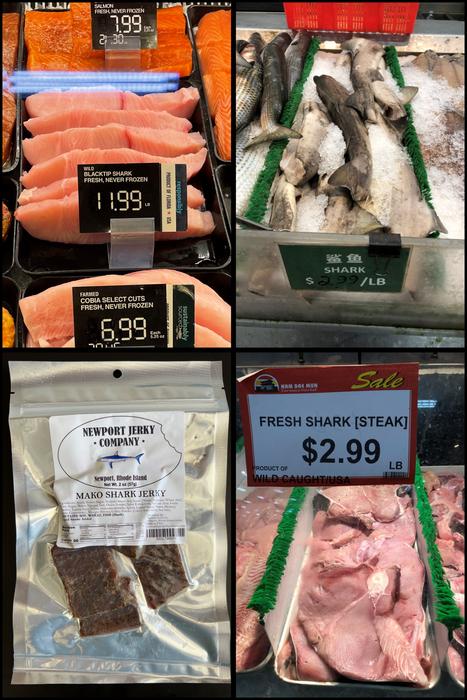Americans are unwittingly eating critically endangered shark meat — with possibly dangerous consequences for their health, according to scientists.
Shark meat can be purchased legally in the U.S., despite alarming population declines in the ocean’s top predators due to fishing and human-caused climate change. The meat sells for as little as $2.99 a pound.
But what grocery stores, seafood markets, and online vendors are selling is frequently mislabeled, according to researchers at the University of North Carolina at Chapel Hill, potentially exposing consumers to toxic mercury.
Twenty-seven of the 29 shark meat samples purchased by the research team were ambiguously labeled.
Shark meat often contains harmful levels of mercury that can result in a loss of peripheral vision; impaired speech, hearing, and movement; and affect brain and nervous system development in children, according to the Environmental Protection Agency.
Some shark species contain more mercury than others, like the critically-endangered great hammerheads and scalloped hammerheads. Why that is remains unclear but the sharks are exposed to underwater soil and rocks that contain the element.
Previous research has found that great hammerheads had the highest levels of mercury, compared to nine other species.
“Hammerheads are one of the premium species in the fin trade, yet the high-end consumers who buy them probably don't realize that by purchasing the most expensive fins they actually are putting themselves and their guests at the greatest health risk,” Dr. Demian Chapman, an adjunct professor Florida International University, said in 2022.
The global shark meat trade involves more than 200 countries and is valued at $2.6 billion, according to the non-profit World Wildlife Fund.
The U.S. is a part of that business and the fourth-largest exporter of shark meat, a recent Greenpeace report shows. The U.S. also imports more than 121,000 tons of shark meat annually, according to non-profit Shark Allies.
Shark meat has been used for pet food but is also sold as jerky and fillets for human consumption. The researchers’ samples were bought in North Carolina, Georgia, and Washington, D.C.
There are more than 20 species that U.S. commercial fishermen are not allowed to catch, including the endangered hammerheads.

People purchasing shark meat in the U.S. are likely unaware of the risk and the harm its doing, the North Carolina researchers said.
Most of the samples collected were simply labeled as “shark” or mako shark,” without including what species was being sold. Of the two that had species listed, one was incorrect.
“Mislabeling and ambiguous labeling remove consumers’ ability to choose what they are putting in their bodies,” Dr. Savannah Ryburn, a researcher at the school, explained in a statement.
The researchers say their findings highlight a major gap in seafood transparency and consumer safety. They called for stronger regulations and oversight of seafood labeling practices.
“The United States should require seafood distributors to provide species-specific names for the products being sold,” Dr. John Bruno, distinguished professor, said.







